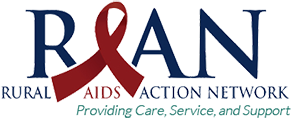HIV/AIDS Basics
HIV can be found in body fluids, including:
- blood
- semen
- vaginal fluids
- rectal fluids
- breast milk
HIV is passed from one person to another by:
- having sex (vaginal, anal, or oral) with a person who has HIV
- sharing needles or other injection equipment
- during pregnancy, birth, or breast-feeding if a mother has HIV
- getting a blood transfusion or organ donation from a person with HIV prior to 1992
AIDS (Acquired Immunodeficiency Syndrome) It can take years for a person infected with HIV, even without treatment, to reach this stage. Having AIDS means that the virus has weakened the immune system to the point at which the body has a difficult time fighting infections. When someone has one or more of these infections and a low number of T cells, he or she has AIDS.
You may be at an increased risk to contract HIV if you have ever:
- Had unprotected vaginal, oral, or anal sexual activity or intercourse.
- Had unprotected sex with a man who has had sex with another man or other men.
- Had unprotected sex with someone who has HIV or AIDS, or who you think might have been infected.
- Had unprotected sex with someone you believe has injected drugs (someone who “shoots up”).
- Injected drugs, steroids, or vitamins, or have a sexual partner who did or does so.
- Shared needles and/or the same cooker, cotton, rinse water, or other possibly contaminated materials even if cleaned in between uses.
- Had multiple sexual partners without using condoms.
- Given or received money or drugs in exchange for sex.
- Had a sexually transmitted infection (STI), such as gonorrhea, syphilis, chlamydia, genital herpes or warts, or had a sexual partner with an STD.
- Received transfusions of blood or blood components between early 1978 and mid-1985, or had a sexual partner who did.
- Had sexual partners who have had other sexual partners who did any of the above.
If you answer “yes” to ANY of these questions you may be at increased risk for HIV.
To inquire about free and confidential HIV testing in your area, make the toll-free call at 1-800-966-9735.
